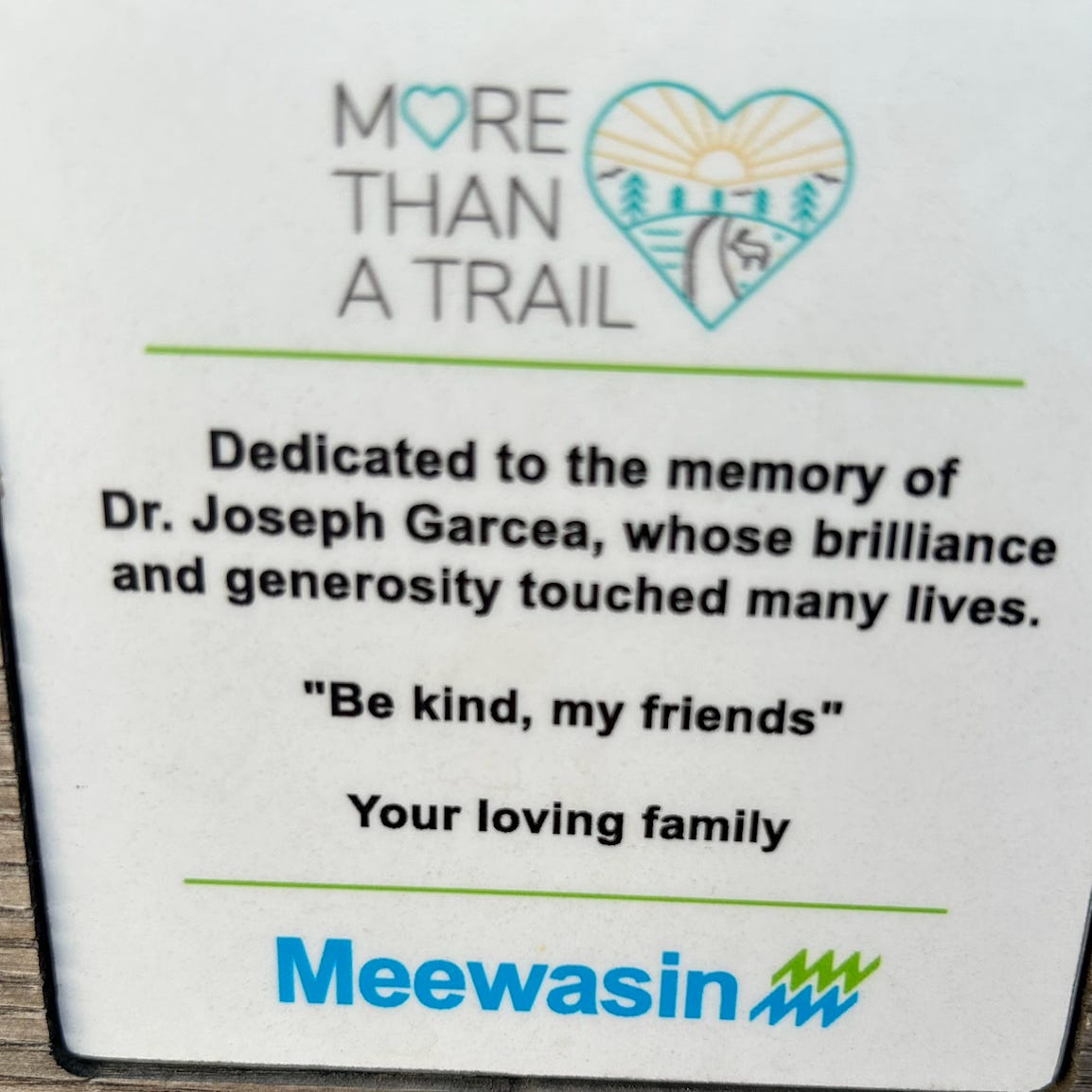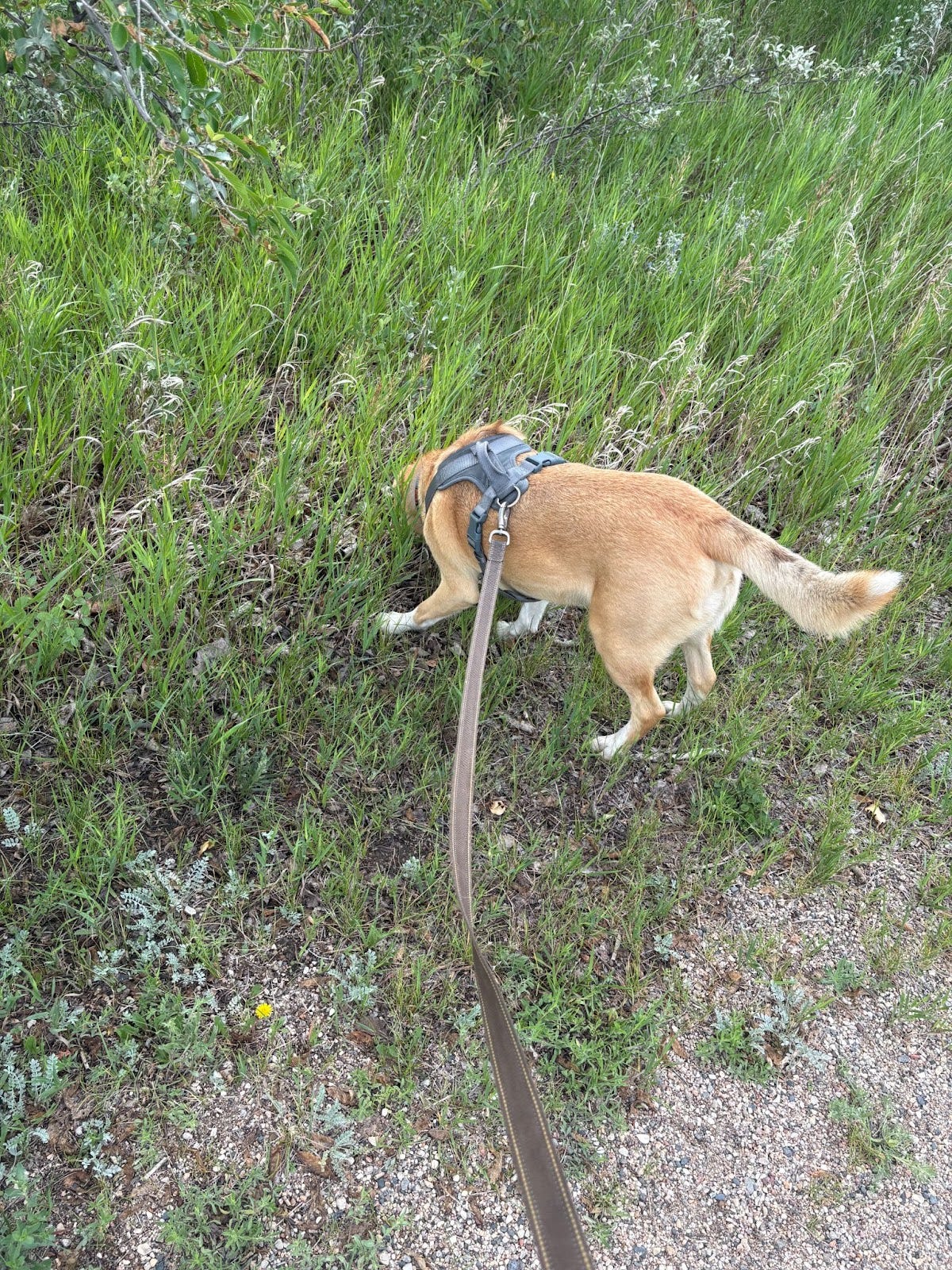How to move forward with kindness in a world that feels anything but.
Plus some oversharing. Content warning for grief and loss; skip this one if these topics are not for you right now.
Hello and welcome to Academia Made Easier. I am so glad you are here.
In KIND: The quiet power of kindness at work, Graham Allcott writes, “people always come first when you get ‘the call’.” You know the call when you get it: someone tells you something horrible has happened to them and their lives are forever altered.
My family got ‘the call’ on June 11. Our young nephew had been in a tragic, fatal traffic accident. It was (and remains) devastating and shocking. In that moment, nothing mattered but covering the 2,760 kilometres to be there for his parents and sisters. When I informed my colleagues why I would be taking time away so abruptly, one told me, “That is such a cruel loss.” The word ‘cruel’ was the correct one. Months later, it still takes my breath away to think about.
His death has shaken me. I have spent the past three months in my head, despite not wanting to be there. I have been thinking about life, about humanity, and about purpose. About human agency, and how we can impact others’ lives and direct our own lives. I have been thinking about how humans together create culture and community, and how we make choices to foster the world we want to live in.
One thing I keep coming back to is how people showed up, literally and figuratively, for my nephew’s family. Family and friends covered great distances to be present. Neighbours arranged weeks of food deliveries. The start of his celebration of life was delayed by a lineup of teammates, teachers, and school friends waiting around the block to pay tribute to a young man who had so much more life to live. The cruelty of his death was met by a tsunami of kindness from his community.
And it reminds me: the world that I want to live in is kind.
The larger world doesn’t feel terribly kind these days. We are in difficult times, cruel times. There is so much to feel hopeless about, to worry about, to rage about. These feelings are justified. The world is heavy. Horrible people are thriving and disrespect is rampant.
Kindness, in this context, seems like an act of defiance. It is showing up and chipping in. It is showing others respect. It is being the best human we can be in our interactions with others. And it is using our agency for kindness to push back against a world that feels anything but kind.
Allcott writes about “seeing kindness not just as something that we personally do, but as a culture that we help create that has the power to bring whole teams and organizations together.” I see an opportunity for all of us, individually and collectively, to make the brave and possibly rebellious choice to use kindness to build the world we want, including in our classrooms and workplaces.
That, dear colleague, is what today's small thing to try immediately is about.
One Small Thing to Try Immediately: Contribute to a culture of kindness at work
Academic cultures vary greatly. Some unit cultures are collegial and supportive, and the challenge is to protect and nurture this. Some unit cultures are distant and superficial, and the challenge is to foster connection. Still other unit cultures are toxic and soul-crushing, and the challenge is to end incivilities and repair harms. For all, a culture of kindness plays an important role in moving forward positively.
Here are some suggestions to contribute to a kind culture in your own department, classroom, and university.
1. Consciously aim to be kind in all interactions. For me, kindness means seeing people as whole people and acting accordingly. This can be challenging when dealing with people who have different values from us, or those with whom we’ve had a history of conflict. Kindness can be difficult when we are feeling pressured on other fronts, and can feel impossible when dealing with people who have been unkind to us.
Kindness is the mental toughness to see the humanity in others, even (especially) when it is inconvenient, uncomfortable, or just annoying to do so. It can be hard. It requires effort. It means asking people about themselves and actually listening to their answers. It means watching the tone of your voice when you are annoyed. It means not sending that email. It means being constructive in anonymous journal reviews, even when recommending rejection. It means treating that very difficult person with respect and dignity, because you are a person who treats people with respect and dignity, period.
Kindness is strength.
2. Practice and role model self-kindness. Allcott writes, “When we are kind to ourselves, we are doing the ultimate role-modelling: we are showing the people we lead and those around us that it is OK for them to be kind (to themselves and to others).” I had to practice a lot of self-kindness this summer. As I mentioned, my nephew’s death shook me deeply and my body responded with complete physical exhaustion. My thinking was foggy and my motivation was non-existent. I gave myself permission to take near-daily naps, to take my neighbour’s dog on near-daily walks, and to lower my work goals from ‘charge full steam ahead’ to ‘just stay on top of things’. This may not have been visible to others – July is a pretty slow month in Canadian academia – but granting myself this grace made a world of difference to me.
3. Don't expect kindness perfection from yourself or others. As humans, we are all going to have our fair share of oblivious moments, jerky moments, and complete asshat moments, and we all will be on the receiving end of our fair share of such moments. Apologize when appropriate, accept apologies when sincerely offered, and move on. See every new moment as a new opportunity to contribute to a broader culture of kindness.
Again, this goes back to kindness as strength. Forgiving ourselves and others is hard. Self-criticism and grudges contain an odd (unhealthy) sense of satisfaction and letting go of them takes some work. But these things are unhelpful, and the world I want to live in is kind. And this requires giving myself and others some leeway.
Let’s face it: the world kind of sucks these days. But we don’t have to.
In the words of my mentor, Dr. Joe Garcea, “Be kind, my friends.”
Until next time…
When I started this newsletter, I intended it to be about light and breezy ideas for academic productivity. How to run meetings, deal with student grading complaints, manage email – that sort of thing. It has frankly been a surprise to me how often I use it to process my thoughts about our increasingly difficult world. I thank you for sticking with me through the heavy stuff. We live in weighty times, and I believe it is easier when we carry the load together.
Stay well, my colleagues.
P.S. My neighbour’s dog, Sammie, and I spent many hours walking this summer. While I was processing my thoughts, she was smelling every flower and darting for every chipmunk. I am so grateful for her.
If you would like to show your appreciation for Academia Made Easier, please visit my buy me a coffee page, or order a copy of my most recent book, For the Public Good: Reimagining Arts Graduate Programs in Canadian Universities. Thanks – I appreciate your readership!



